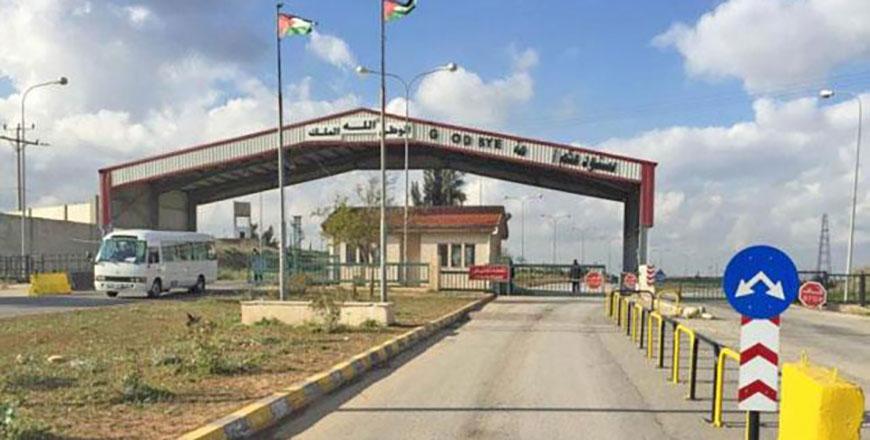You are here
Jordan-Syria border reopening to ‘move wheel of economy’
By Batool Ghaith - Sep 29,2021 - Last updated at Sep 29,2021

A view of Jaber border crossing with Syria, some 90km northeast of Amman (AFP file photo)
AMMAN — Economists expect positive economic outcomes after the Jordanian-Syrian ministerial meeting, which aimed to enhance economic cooperation between the countries.
Both the Jordanian and Syrian sides highlighted the importance of a plan to increase economic cooperation, calling for enhancing partnerships in the energy, water, agricultural, trade and industry fields.
Economist Hosam Ayesh indicated that Jordan will now hopefully be able to meet Syria’s needs after a long period of closure, economic destruction and unemployment since 2010, resulting from the Syrian civil war.
“Jordan is very important for reviving the economic movement in Syria and increasing its exports, which will also restore the economic movement in Jordan to how it was before the Syrian war. This opening of the last closed door with one of the Kingdom’s neighbouring countries will be a significant achievement,” Ayesh told The Jordan Times during a phone interview on Wednesday.
Ayesh noted that the economic cooperation between the countries will not only boost trade between Syria and Jordan but will also boost “transit trade”, where Jordanian products can be exported to other countries through Syria.
Ayesh indicated that Jordan is a key element in the “New Levant Alliance”.
“Perhaps this new economic cooperation with Syria opens a door to the inclusion of Syria and possibly Lebanon later on to the alliance,” the economist said.
However, Ayesh said that there should not be high expectations in terms of immediate trade exchange between the countries. It will require time and effort to return to how it was before the Syrian crisis, Ayesh said, especially under the “Caesar Syria Civilian Protection Act” – the US legislation that sanctions the Syrian government.
“The return of economic cooperation between Jordan and Syria will be under the supervision of the Caesar Act, as the US prevents any kind of cooperation with Syria,” said Ayesh.
“Jordan will certainly not risk violating this law, but it is clear that there is an Arab regional and American mandate to influence the Syrian government’s political rehabilitation through an economic portal, which benefits Jordan and other countries as well,” Ayesh said.
Economist Mazen Marji hailed the new economic cooperation between Jordan and Syria, describing it as a “very positive step” towards a better economy for Jordan.
Marji told The Jordan Times on Wednesday that the return of relations between the two countries will “definitely have great positive results”.
Marji said that the faster cooperation and relations return between the countries, the better the results will be.
He indicated that the economic cooperation will also help with employment and the operation of more than 80,000 trucks owned by Jordanians.
“The cooperation between the countries will create plenty of job opportunities, which is much needed now during the ongoing pandemic crisis,” he said.
He also pointed out that the reopening of the borders will also boost tourism for the two countries.
Economist Mazen Irsheid said that the volume of trade between Syria and Jordan was on the rise before the Syrian crisis, reaching nearly JD500 million, but it has declined significantly throughout recent years.
In 2020, the trade volume did not even exceed JD100 million, Irsheid said.
“Reopening the borders will move the wheel of the economy again after 10 years of the crisis,” Irsheid told The Jordan Times.
Irsheid noted that there are important sectors where Jordan and Syria can cooperate – the most important is the energy sector, especially to help Lebanon during its economic crisis.
He also pointed out that the cooperation will boost the transport sector, as there will be trucks moving to and from Syria to Jordan. Furthermore, the transport of goods such as potash, agricultural and food materials will benefit from the border reopening, he added.
Related Articles
AMMAN — The joint economic city between Iraq and Jordan will help boost trade ties and create much-needed jobs, according to pundits.Speakin
AMMAN — Economists on Sunday welcomed the decision of the League of Arab States to reinstate Syria’s membership, noting that the move will p
AMMAN — Out of 205 countries listed in the World Bank's 2018 gross domestic product (GDP) global rankings, Jordan ranks as the 91st country

















